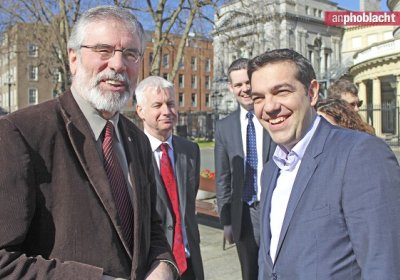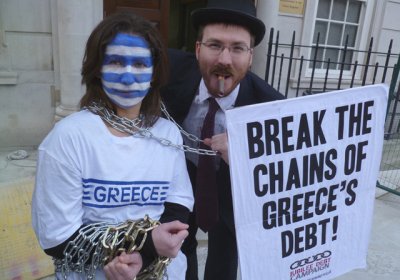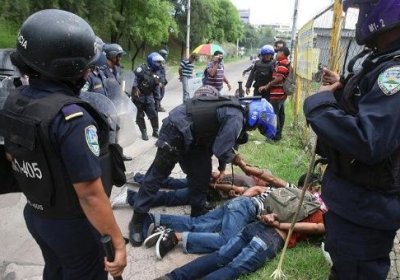The Greek Parliament voted in the early hours of July 16 to back the deal agreed to by Prime Minister Alexis Tsipras on the tough economic measures demanded by Greece's creditors.
The vote came despite street protests and strikes -- and in the face of a statement released the day before by the governing SYRIZA party's central committee against the deal.
Democracy
Police in The Hague arrested 42-year-old tourist Mitch Henriquez on June 27. Henriquez, who was born on the Dutch-Caribbean island of Aruba, was visiting the city’s Night at the Park festival.
The statement released by the public prosecutor claimed that he told police he had a gun and then resisted arrest. This prompted five police officers to beat Henriquez until he was unconscious.
Core texts of the secretive Trade in Services Agreement (TISA) have finally been exposed by WikiLeaks.
The whistleblowing group released the explosive document on July 1, ahead of the a new round of negotiations. The 52 participating countries, including the US, Japan, Australia, Israel and the members of the European Union, are discussing “liberalisation” of laws on financial services, telecommunications and cross-border transfer of workers.
“The conduct of a number of EU governments over the past number of weeks has been alarming,” president of Irish republican party Sinn Fein and member of the Irish Dail (parliament) Gerry Adams said on the outcome of the European Union summit, which ended Greece submitting to a harsh deal.
“They have effectively closed down the Greek banking system and held the Greek Government and people to ransom.
Leading British campaigners against global debt have slammed the creditors over a deal reached between the European Union countries and Greece, likening the deal to the imperial politics of the 19th century.
The debt campaigners also drew parallels with the way debt was used to control Latin American nations in the 1980s.
 Protest demanding investigation of war crimes. Jaffna, Sri Lankan-occupied Tamil Eelam, February 24.
Sri Lankan President Maithripala Sirisena has dissolved parliament and called elections for August 17. Sirisena was elected president on January 9, replacing Mahinda Rajapaksa.
Protest demanding investigation of war crimes. Jaffna, Sri Lankan-occupied Tamil Eelam, February 24.
Sri Lankan President Maithripala Sirisena has dissolved parliament and called elections for August 17. Sirisena was elected president on January 9, replacing Mahinda Rajapaksa.
One month after Turkey’s June 7 parliamentary elections, the country still does not have a government. Ahmet Davutoglu of the Justice and Development Party (AKP) remains caretaker prime minister.
President Recep Tayyip Erdogan remains the dominant figure in the AKP and is manoeuvring to retain his party’s leading position. The president is supposed to be an impartial figure above party politics but Erdogan pays scant regard to such constitutional niceties.
The elections were marked by two significant and related developments.
The British Conservative Party government introduced new austerity measures on July 8, which include slashing millions of pounds in social spending, increasing the military budget and cutting corporate taxes.
Chancellor George Osborne announced the new budget to parliament, which includes some 12 billion pounds in social spending cuts over three years.
Allegations of human rights abuses have sky-rocketed in Honduras alongside a rise increase in militarisation in the violence-plagued Central American country.
 In the wake of the political assassination of nine African Americans in Charleston, South Carolina, on June 17 by a white supremacist, racial tensions remain high.
Since that incident, seven Black churches in the South have suffered fires, recalling many such incidents in the past.
In the wake of the political assassination of nine African Americans in Charleston, South Carolina, on June 17 by a white supremacist, racial tensions remain high.
Since that incident, seven Black churches in the South have suffered fires, recalling many such incidents in the past.
African American activist Bree Newsome made world headlines on June 27 when she scaled the flagpole in front of the South Carolina Statehouse and removed the Confederate flag. Arrested for her efforts, the flag was raised an hour later — but the powerful image went global.
- Previous page
- Page 292
- Next page







